EMV workshops reaffirm tourism’s role in national economic agenda
The Jordan Times
AMMAN — The Economic Modernisation Vision (EMV) workshops continued Wednesday at the Royal Hashemite Court with a focus on Jordan’s tourism sector, underscoring its central role in driving economic growth, job creation and regional development.
Launched three years ago under Royal directives, the EMV positions tourism as a key pillar of national transformation. The workshops brought together officials from government institutions, business leaders, and civil society representatives to review the sector’s progress and chart priorities for the next phase of implementation.
The EMV identifies Jordan’s strength in tourism as stemming from its diverse offerings, from archaeological and religious sites to natural landscapes like Wadi Rum and the Dead Sea, as well as its moderate climate, rich hospitality traditions, and strategic location near major international markets in Europe, the Gulf and Africa.
The vision also aims to elevate Jordan as a standalone international destination by investing in infrastructure, improving transport networks, enhancing digital data systems, and developing a highly skilled tourism workforce.
Key achievements so far include the rollout of a national strategy for wellness and medical tourism, the piloting of electronic ticketing at major attractions, the activation of the National Tourism Council, and the advancement of a new Tourism Development Fund.
Despite the progress, tourism leaders say the sector continues to face serious challenges stemming from regional instability and internal structural issues.
Deputy Chairman of the Jordan Hotels Association Hussein Helalat told the Jordan Times that the Israeli war on Gaza, rising tensions between Iran and Israel, and the temporary closure of regional airports have disrupted the flow of tourists.
Helalat also pointed to outdated tourism laws, a shortage of mid-range hotels in high-potential destinations like the Dead Sea and Aqaba, and limited financing options for hotel development in underserved governorates.
As part of efforts to improve tourism offerings, Helalat highlighted a flagship initiative that has gained traction. He said, “One of the standout initiatives is the 'Jordan Trail', which has connected more than 40 rural communities to the tourism economy through immersive, community-based experiences.”
Deputy Chairwoman of the Jordan Inbound Tour Operators Association Yassar Malhas echoed the concern over safety-related misperceptions. “Jordan is one of the safest countries in the region, but many potential visitors still hesitate,” she said, calling for an urgent international marketing campaign to reposition Jordan globally.
“There is a persistent misconception that Jordan is unsafe because of its proximity to conflict zones, and that has impacted inbound travel,” She noted.
Malhas also said that while ongoing infrastructure upgrades and diversified offerings are welcome steps, greater collaboration is essential. “Stronger public-private coordination is needed to reach new markets and raise Jordan’s profile as a desirable destination,” she said.
“The government has provided zero-interest loans that helped many hotels retain staff,” She said, “but the decision-making process still needs to be more inclusive to reflect the real needs of the sector.”
Looking ahead, both Helalat and Malhas expressed cautious optimism, citing the EMV’s strategic clarity and increasing alignment with on-the-ground realities.
“Jordan has the assets, the expertise, and the determination,” Helalat said. “If we can align our policies, investments, and outreach, we can truly become a world-class tourism destination.”
As part of the EMV’s regular evaluation process, these workshops, which will continue until July 29, are intended to keep the vision responsive to international shifts and local needs, ensuring its alignment with best practices and its potential to deliver measurable results.
Latest News
-
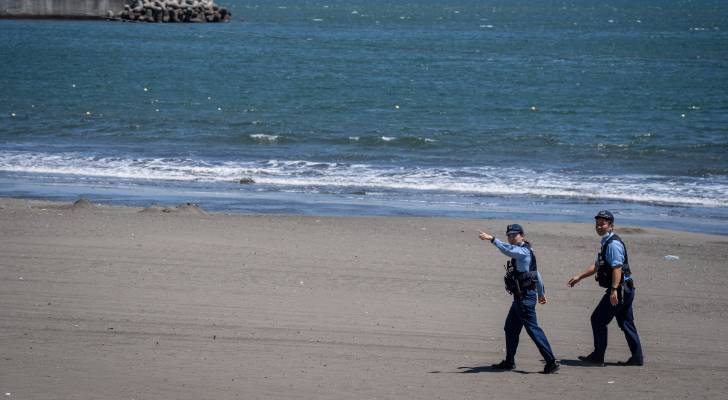 Huge quake off Russia sparks Pacific tsunami warnings
Huge quake off Russia sparks Pacific tsunami warnings
-
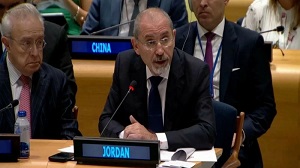 Safadi says recognition of Palestinian State ‘urgent necessity’, prerequisite to achieving lasting peace
Safadi says recognition of Palestinian State ‘urgent necessity’, prerequisite to achieving lasting peace
-
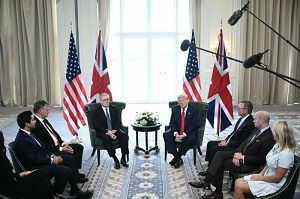 Trump says Gaza ceasefire 'possible' amid Starmer talks
Trump says Gaza ceasefire 'possible' amid Starmer talks
-
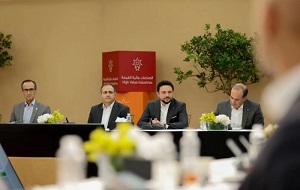 Crown Prince attends ICT session within economic vision’s second phase workshops
Crown Prince attends ICT session within economic vision’s second phase workshops
-
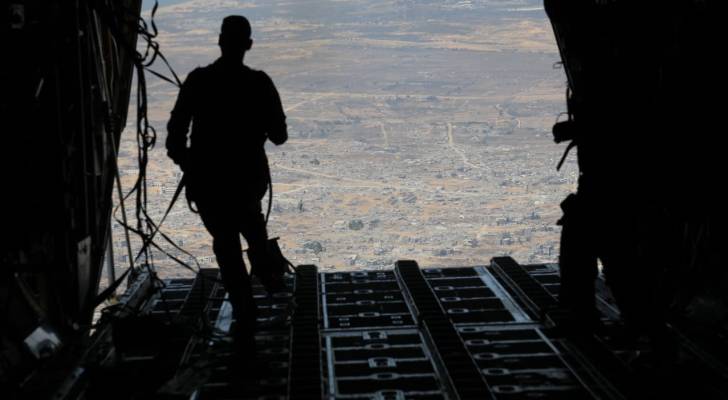 Jordan carries out two more Gaza aid airdrops, with UAE participation
Jordan carries out two more Gaza aid airdrops, with UAE participation